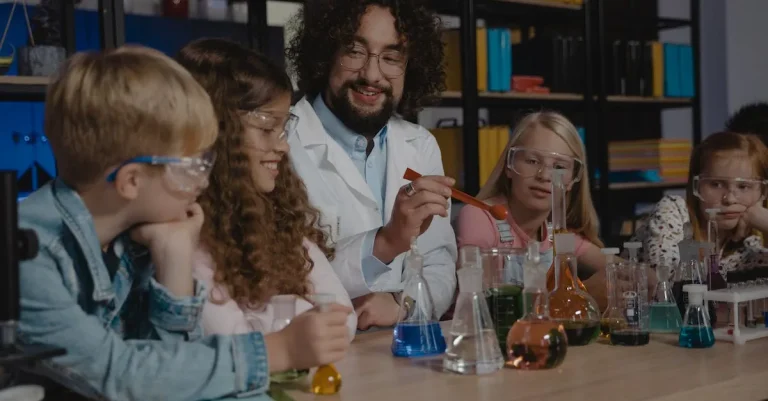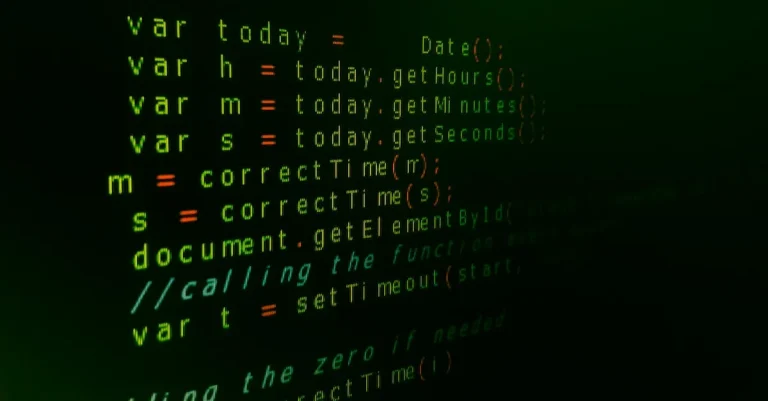15 Catchy Titles For Your Next Science Fair Project
Coming up with a catchy, attention-grabbing title is one of the most important parts of preparing for a science fair. Whether you want your title to be creative, funny, or informative, a good title will make your project stand out and attract interest.
If you’re short on time, here’s a quick answer to your question: Choose a title related to your topic that incorporates humor, a play on words, a famous quote or song lyric, or vivid imagery. You can also try using alliteration, rhymes, or questions to make your title memorable.
In this comprehensive guide, we’ll cover all the elements that make up a catchy, effective science fair project title and provide examples you can use as inspiration for your own project.
Keep it Short and Sweet
When it comes to choosing a title for your next science fair project, it’s important to keep it short and sweet. A catchy and concise title not only grabs the attention of the judges and audience but also conveys the essence of your project in a few words.
Here are some tips to help you create a title that stands out:
Aim for 10 words or less
The first rule of thumb is to keep your title within 10 words or less. Short titles are easier to remember and make a stronger impact. They also allow you to convey your project’s main idea without overwhelming the reader with excessive information.
For example, instead of “Investigating the Effects of Different Soil Types on Plant Growth,” you could go for a shorter title like “Soil Types and Plant Growth.” This shorter title gets straight to the point and is more likely to catch the attention of the judges.
Focus on key terms
Another important aspect of a catchy title is to focus on key terms that summarize your project. These key terms should be the most important aspects or findings of your research. By including them in your title, you give the reader a clear idea of what your project is about.
For instance, if your project is about the impact of temperature on seed germination, a title like “Temperature’s Influence on Seed Germination” would be more effective than a generic title like “Seed Germination Study.”
Avoid unnecessary words
When crafting your science fair project title, it’s crucial to avoid unnecessary words that add no value to the overall message. Be concise and get straight to the point. Remove any excessive adjectives or adverbs that do not contribute to the main idea.
For example, instead of “An In-Depth Investigation into the Fascinating World of Ants,” you could simply go for “Ant Behavior Patterns.” By eliminating unnecessary words, your title becomes more impactful and memorable.
Remember, the goal of your science fair project title is to catch the attention of the judges and audience, while also effectively summarizing the essence of your project. By keeping it short and sweet, focusing on key terms, and avoiding unnecessary words, you can create a catchy title that leaves a lasting impression.
Incorporate Wordplay or Humor
Use rhymes or alliteration
One way to make your science fair project title catchy and memorable is by incorporating rhymes or alliteration. This adds a playful and fun element to your project. For example, if your project is about exploring the effects of different liquids on plant growth, you could come up with a title like “Liquid Love: A Study on How H2O Helps Plants Grow”.
This not only grabs attention but also showcases your creativity.
Make a pun or double meaning
Puns and double meanings can be a great way to inject humor into your science fair project title. It adds a clever twist and engages the reader. Let’s say your project is about investigating the properties of magnets.
You could come up with a title like “Attracting Attention: The Magnetic Magic Behind It All”. This title not only conveys the subject matter but also adds a playful element that will make people smile.
Go for funny over formal
When it comes to science fair project titles, it’s often better to go for funny and lighthearted rather than formal and serious. This is because humor can instantly grab attention and make your project stand out.
For instance, if your project is about exploring the effects of temperature on chocolate melting, you could come up with a title like “Hot and Melty: The Sweet Science of Chocolate Chaos”. This title not only conveys the topic but also adds an element of fun that will make people curious to learn more.
Ask a Thought-Provoking Question
Pose an intriguing mystery
When it comes to creating a catchy title for your science fair project, posing an intriguing mystery is a great way to pique the interest of your audience. Consider asking a question that challenges conventional wisdom or explores an unexplained phenomenon.
For example, “Why do certain plants thrive in acidic soil while others prefer alkaline conditions?” This question not only sparks curiosity but also sets the stage for a fascinating investigation into the intricacies of plant biology.
Make them wonder ‘why?’
Another effective approach is to make your audience wonder “why?” Choose a question that highlights a common occurrence or phenomenon that people often take for granted. For instance, “Why does ice float on water?”
This question immediately engages the reader’s curiosity and prompts them to seek an answer. By presenting a captivating question, you can capture your audience’s attention and motivate them to learn more about the scientific principles behind everyday phenomena.
Avoid yes/no questions
When crafting a thought-provoking question for your science fair project, it’s important to avoid simple yes/no questions. Instead, opt for open-ended questions that encourage critical thinking and exploration. For example, instead of asking “Can plants grow without sunlight?”
consider asking “How does the absence of sunlight affect plant growth?” This type of question invites investigation and promotes a deeper understanding of the topic at hand.
Use Vivid Imagery and Descriptive Words
When it comes to creating catchy titles for your science fair project, using vivid imagery and descriptive words can make a huge difference. By incorporating these elements, you can grab the attention of your audience and make your project stand out from the rest.
So, how can you effectively use vivid imagery and descriptive words in your titles? Let’s find out!
Paint a picture with adjectives
Adjectives are powerful tools that can help you create a visual representation of your project. Instead of using generic terms, such as “interesting” or “cool,” try to be more specific and use adjectives that paint a picture in the reader’s mind.
For example, instead of titling your project “How Plants Grow,” you could use a more descriptive title like “The Astonishing Growth Patterns of Sunflowers.” This not only grabs attention but also gives a glimpse into the uniqueness of your project.
Invoke the senses with strong nouns
Another way to make your title catchy is by using strong nouns that invoke the senses. By incorporating words that appeal to sight, sound, taste, smell, or touch, you can create a title that is not only descriptive but also engaging.
For instance, if your project involves studying the effects of different music genres on plant growth, you could title it “The Harmonious Symphony: How Music Influences Plant Development.” This title immediately captures the reader’s attention and entices them to learn more.
Steer clear of generic terms
Avoid using generic terms in your titles as they can make your project seem ordinary and less appealing. Instead, opt for specific and unique words that accurately represent your project. For example, if your project is about creating a more efficient solar panel, a title like “Revolutionizing Renewable Energy: The Breakthrough Solar Panel Design” would be far more captivating than a generic title like “Improving Solar Panels.”
By steering clear of generic terms, you can ensure that your title reflects the true essence of your project and captures the interest of your audience.
Remember, the title is the first thing that people will see when they come across your science fair project. By using vivid imagery and descriptive words, you can create catchy titles that not only pique the curiosity of your audience but also highlight the uniqueness of your project.
So, get creative and make your science fair project title truly stand out!
Incorporate References from Pop Culture
When it comes to creating catchy titles for your science fair project, incorporating references from pop culture can add an extra element of fun and creativity. By alluding to famous quotes, lyrics, or titles, you can grab the attention of your readers and make your project stand out.
Here are some tips to help you incorporate pop culture references effectively:
Allude to famous quotes, lyrics, or titles
One way to incorporate references from pop culture is to allude to famous quotes, lyrics, or titles. For example, if your project is about the effects of music on plant growth, you could use a title like “Green Day: How Music Makes Plants Thrive.”
This not only incorporates a popular band’s name but also hints at the idea of plants thriving with music, which can pique the interest of your audience.
Make sure references are clear
When using references from pop culture, it’s important to make sure they are clear and easily recognizable. You want your readers to immediately understand the reference you’re making. For instance, if your project is about the impact of exercise on brain function, a title like “Exercise: The Real-Life Limitless Pill” would clearly reference the popular movie “Limitless” and its concept of unlocking the full potential of the brain.
Stay away from obscure references
While incorporating pop culture references can be entertaining, it’s crucial to stay away from obscure references that only a small group of people will understand. The goal is to engage a wide audience, so choose references that are well-known and relatable.
For example, if your project explores the effects of different cooking methods on food taste, a title like “MasterChef: The Science Behind Mouthwatering Meals” would resonate with a larger audience, as the TV show “MasterChef” is widely known.
Remember, the key is to strike a balance between incorporating pop culture references and ensuring they are easily understood by your audience. By following these tips, you can create catchy titles for your science fair project that will capture the attention and curiosity of your readers.
Conclusion
Crafting the perfect title for your science fair project may seem daunting, but following these tips and techniques can help you come up with something creative that captures attention. Focus on using vivid imagery, humor, wordplay, and brevity to make your title memorable.
With an eye-catching title and a strong project to back it up, you’ll be on your way to science fair success.







